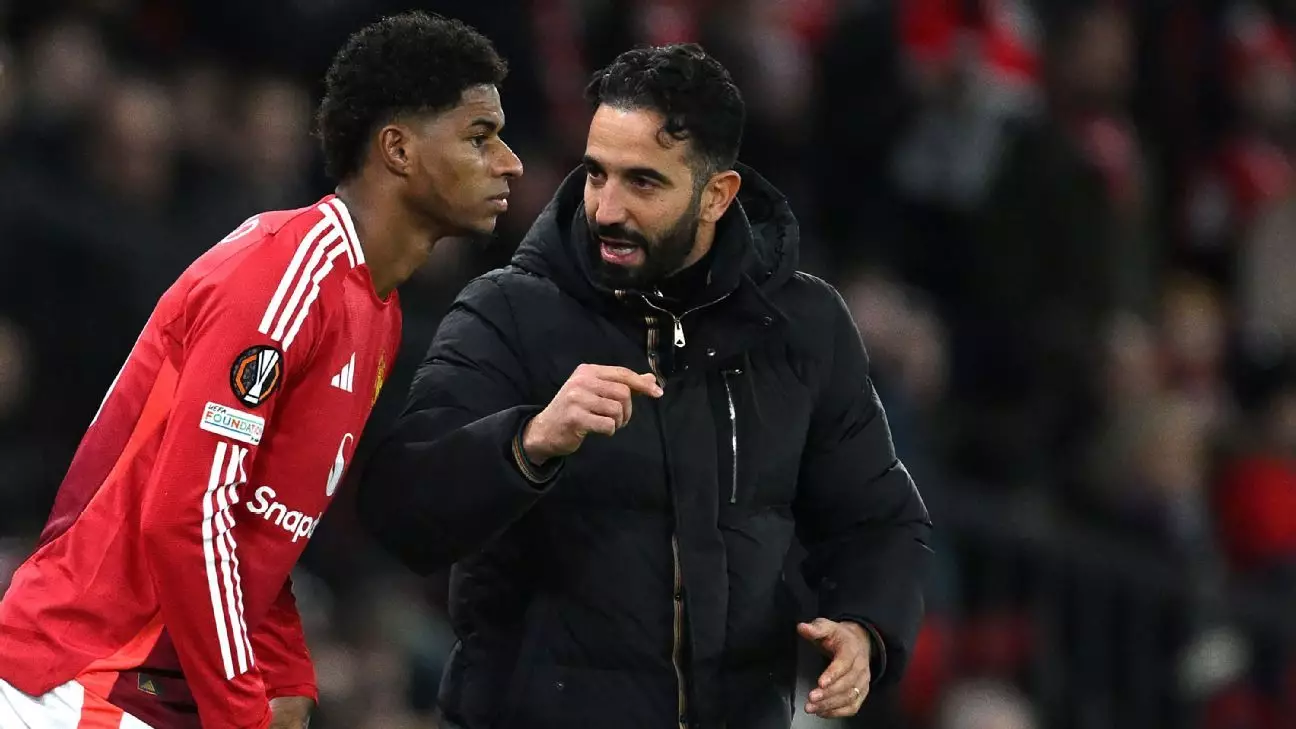In recent days, Manchester United fans have been left pondering the future of Marcus Rashford as he finds himself absent from the squad for consecutive matches, with notable omissions from high-stakes games. Initially, the 27-year-old forward was absent during the thrilling 2-1 victory over Manchester City, a match that not only showcased United’s fighting spirit but also raised questions about the selection choices made by coach Ruben Amorim. Following a recent interview where Rashford hinted at a desire for a “new challenge,” the situation became even more convoluted, culminating in his absence during the Carabao Cup quarterfinal clash against Tottenham Hotspur, which ended in a dramatic 4-3 defeat for United.
Rashford’s recent statements have set the stage for a potential departure from the club that nurtured his talent. His comments suggest a yearning to explore opportunities that may offer him a different trajectory, bringing to light the discontent brewing within the player. Such feelings are compounded by his exclusion from critical matches, igniting speculation around his standing with the club and coaching staff. Despite having a contract that runs until 2028, his future seems precariously balanced on the scale of performance and management’s expectations.
The Importance of Training and Performance
In addressing the rationale behind squad selections, coach Ruben Amorim emphasized the critical role of training, discipline, and overall engagement in deciding who takes the field. He iterated the necessity of high standards, stating, “Everything is important in our context in the beginning of something when we want to change a lot of things.” With pressure mounting within the club, where managerial stability is paramount given recent setbacks, there is a heightened focus on accountability and contributions from every player.
Amorim’s public comments reflect not only his expectations but also a potential pathway back for Rashford, provided he can demonstrate his readiness to commit fully. The coach’s decision to reinstate Alejandro Garnacho, who was previously left out, further illustrates the dynamic nature of squad selections, prioritizing those who exhibit promising training performances and a strong team ethic.
As the narrative unfolds, one must question what’s next for Rashford. Will he adapt to the increased expectations and prove himself worthy of a spot in the starting eleven? Or will the combination of his recent statements and current exclusions lead to an inevitable split from Manchester United, igniting a transfer saga engulfed in media frenzy?
In a club chasing rejuvenation amid past disappointments, the future remains uncertain for Rashford. His trajectory at Manchester United could be seen as a barometer for broader changes within the team itself. As outcomes are weighed against individual ambitions and expectations, it’s a pivotal moment that could define not just Rashford’s career but the future of a club that strives to reclaim its former glory.

